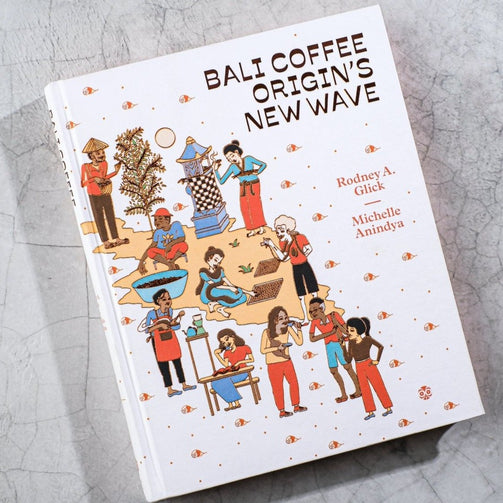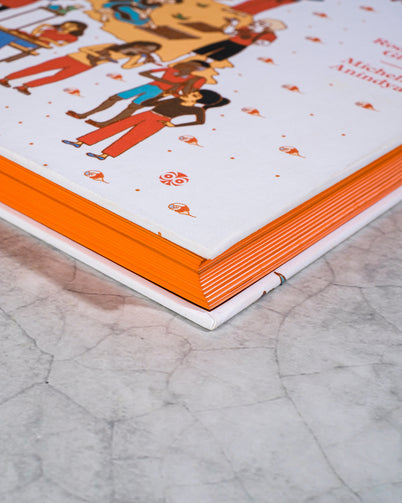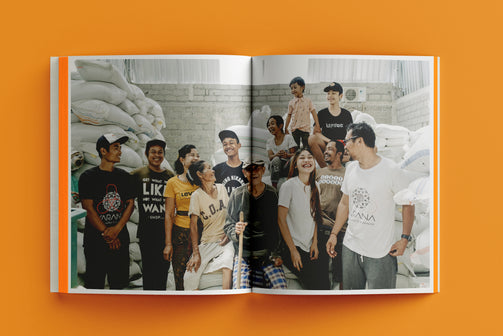





Bali Coffee: Origin's New Wave
Bali Coffee: Origin's New Wave
- Regular price
- $63.07 USD
- Regular price
-
- Sale price
- $63.07 USD
- Unit price
- per
*Some shipping fee is already included in the price.
BALI COFFEE: ORIGIN’S NEW WAVE
A new coffee ‘coffee table’ book written by Rodney Glick and Michelle Anindya, both provocative actors inside Indonesia’s coffee scene. “BALI COFFEE: ORIGIN’S NEW WAVE” explores coffee’s dynamic energy on the Island of the Gods, where Bali’s rich cultural imagery is intertwined with contemporary Origin coffee stories.
Discover Bali’s growing coffee scene by diving into its agricultural richness. Investigate how coffee’s International 3rd Wave is now Origin’s New Wave. Explore local farming and experimental processing methods. Delve into the background behind Indonesia’s first coffee flavor wheel. Learn practical home brewing and roasting techniques, linked with the intergenerational journey of a Balinese coffee family.
In this 260-page coffee table book featuring photography by some of the country’s most talented photographers, authors Glick and Anindya present a revolutionary overview of coffee’s Origin Zeitgeist.
Authors
Rodney Glick is Director of Coffee at leading Indonesian specialty coffee brand Seniman Industries, Co-founder of coffee processor Karana Spesialis Kopi, and initiator of Roda Rasa Kopi Indonesia, the nation’s first coffee flavor wheel.
Michelle Anindya completed her degree in cultural studies in San Francisco, USA. She was instrumental in researching Roda Rasa Kopi Indonesia, developing the Roda Rasa Kopi Indonesia smartphone app, and creating the Indonesian Sensory Lexicon and accompanying aroma kit.
About the Book
Hardcover
23 x 31 x 3 cm (Portrait)
260 pages
English
1.3 kg
October 2021
ISBN: 978-602-6990-65-5
Authors: Rodney A. Glick and Michelle Anindya
Owner: Seniman Coffee Ubud
Producer: Afterhours Book, Jakarta
For more information: https://www.senimancoffee.com/book-bali-coffee
Couldn't load pickup availability